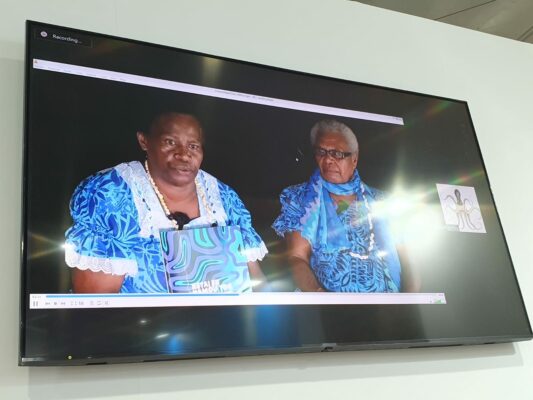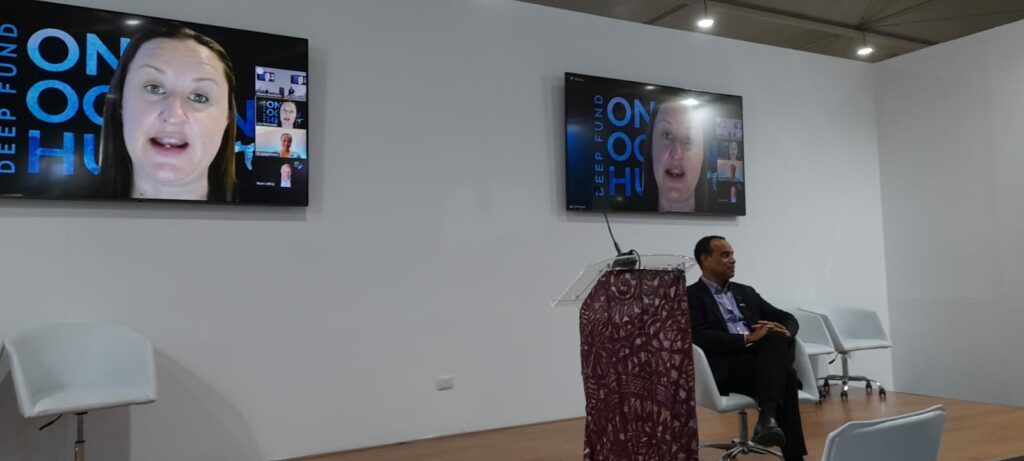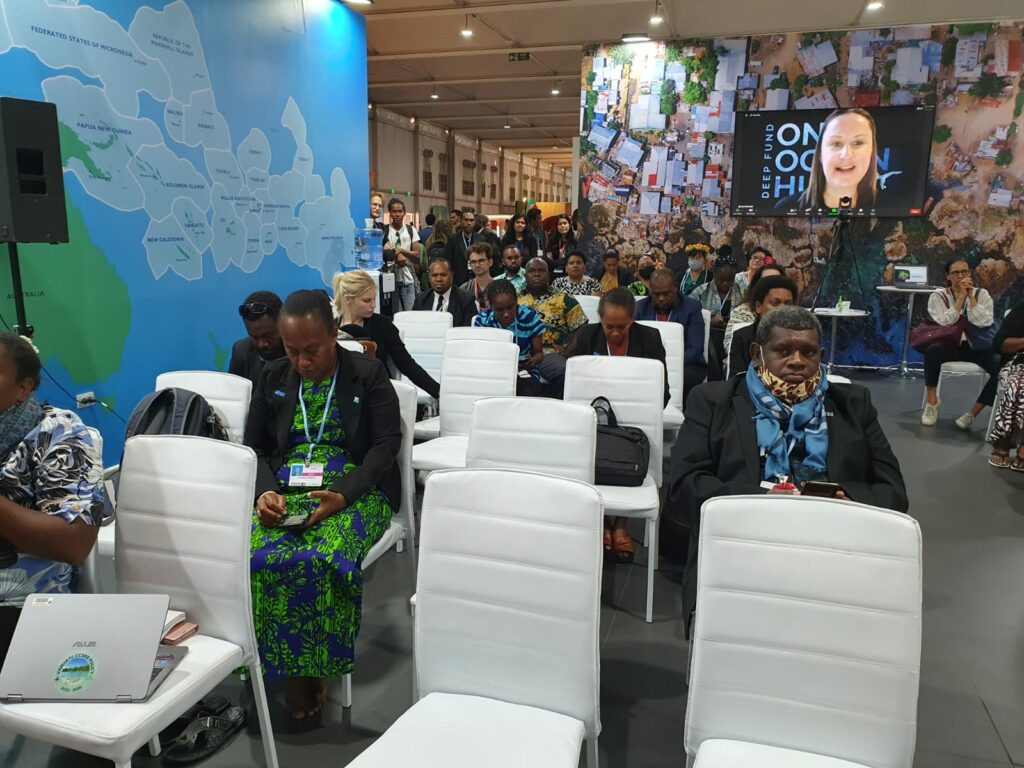Indigenous Knowledge and Inclusive Ocean Governance: a Case Study from Vanuatu

The session presented Netai en Namou Toc (Stories of Mother Ocean), a newly published illustrated children’s book produced by the Erromango Cultural Association in collaboration with One Ocean Hub’s Deep Emotional Engagement Programme (DEEP) Fund. Photo: Bernadette Snow

There is urgency in capturing traditional ocean knowledge, including traditional sea-based origin stories, as well as traditional weather and maritime knowledge. This blog post reflects on what we have learnt and continue to learn from arts-based approaches to valuing and sharing ocean knowledge and its contributions to climate change policy, based on experience in Vanuatu under the Hub’s DEED Fund.
The last week of the COP27 saw One Ocean Hub chair a special round table session in the Moana Blue Pacific Pavilion, both in person and virtually. Watch the recording here.
The session, entitled Indigenous Knowledge and Inclusive Ocean Governance: a Case Study from Vanuatu, was an opportunity to discuss the highly successful work of the Erramango Cultural Association, supported by the DEEP Fund. Their work captures traditional ocean knowledge on Erromango islandin particular, through the production of their new children’s book Netai en Namou Toc (Stories of Mother Ocean). It was a huge honour to have Anna Nuapa of the Erramango Cultural Association at the session to speak on this project directly, and we were similarly honoured to have the participation of Dr Robson S. Tigona, a climatologist from the National University of Vanuatu, and The Right Honourable Ralph Regenvanu, Minister of Climate Change Adaptation for the government of Vanuatu. This range of speakers reflects the interdisciplinary and transdisciplinary nature of the DEEP fund research by representing communities, scientists and policy makers.

The innovations of the DEEP Fund
The session was chaired by Hub early-career researcher Lisa McDonald of Glasgow School of Art and One Ocean Hub’s DEEP Fund, and her colleague Stuart Jeffrey, the DEEP Fund lead, opened the session by highlighting the fundamental importance of Indigenous Knowledge and cultural heritage more broadly in the face of multiple challenges to the ocean. Stuart discussed the DEEP Fund’s highly innovative funding model with its strong focus on process, i.e. the value to communities of creative engagement beyond the generation of the specific outputs. This approach has also demonstrated modes of avoiding the prioritisation of academic and professional priorities over community voices.
The DEEP Fund supports artists and communities to design their own processes and to surface their own priorities. Examples of DEEP Fund projects in Ghana, South Africa and the Solomon Islands and Papua New Guinea were given.
The The Netai en Namou Toc children’s book
The session focused on the presentation of The Netai en Namou Toc children’s book. Anna Nuapa gave a thoughtful, informative and beautifully illustrated presentation of the book’s production process. Starting with the stark colonial and historical context, including de-population and language loss, she went on to describe the subsequent urgency of capturing traditional sea-based origin stories, including reviving traditional weather and maritime knowledge. The presentation detailed the fundamentally intergenerational nature of the writing and illustration process. As well as giving thought provoking examples of stories and illustrations from the book, Anna’s presentation included a short video (which is available here).
Reflecting on the multiple values of Indigenous Knowledge
Following this presentation, Dr Tigona gave another perspective on the relationships between Indigenous Knowledge and the challenges to the climate. He pointed out that traditional knowledge is based on thousands of years of lived experience in comparison to other forms of record, such as rainfall, which began in the colonial period, and temperature records, which only began in the 1970’s. He went on to highlight the multifaceted nature of this knowledge including, but not limited to, astronomical, meteorological and seasonal plant and animal behaviour. Using the example of traditional knowledge of wind patterns, a critical question was raised about the consequences for links between the environment, culture and traditional knowledge as the climate changes with global warming, changing these patterns.
The closing talk came from The Rt. Hon. Ralph Regenvanu a long-time advocate of preserving cultural knowledge, and its critical value to understanding the intertwined nature of communities and the environment in which they live, and ultimately how that environment should be governed. The minister’s closing remarks rounded off the session by eloquently drawing together the various strands of Indigenous Knowledge, creativity, climate science and governmental priorities. This was a fitting end to what was a well attended and well received session that actively demonstrated, through the Vanuatu case study, how Indigenous Knowledge can be supported through arts based funding and have its value celebrated and considered in policy-making processes.
